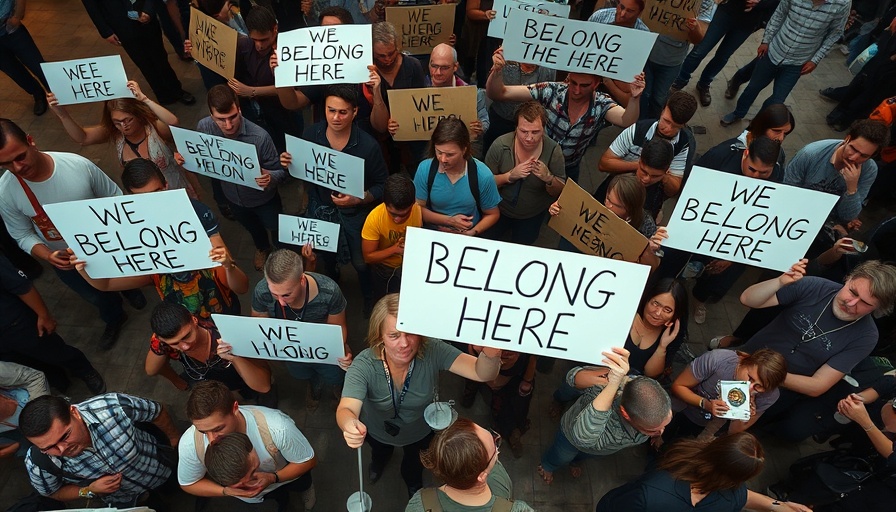
Understanding Texas' DEI Debate: History and Context
The ongoing debate around Diversity, Equity, and Inclusion (DEI) in Texas universities is a poignant reflection of America's struggle with racial and social equity. Historically, DEI initiatives have emerged as efforts to close educational and income disparities stemming from a long history of systemic oppression and discrimination. As proponents argue, these programs are integral to fostering an inclusive environment where students from historically marginalized groups can thrive.
The Impact of Recent Legislative Changes
In 2023, Texas enacted legislation banning DEI programs at public colleges and universities, sending shockwaves through campuses. The University of Texas at Austin, for instance, saw the closure of its multicultural center, which previously supported numerous cultural groups. This swift transition has left students like Kam McQueen, a senior impacted by these changes, feeling alienated. For many students, such centers were not merely spaces of social interaction but critical hubs of support that facilitated community, cultural expression, and personal development.
Examining Diverse Perspectives on DEI Initiatives
The clash over DEI signifies deeper ideological divides. Supporters of DEI programs view them as essential pathways to bridge long-established societal inequities. They cite the Civil Rights Act of 1964 and the constitutional right to equal protection as the foundation upon which these programs stand. On the other hand, critics, often vocal in the Republican-led movements, contend that these same initiatives, by focusing on race and identity, ironically foster division. They argue that meritocracy should reign supreme in educational environments, claiming that focusing on diversity detracts from the core educational mission.
The Role of Universities in Promoting Inclusion
Universities play a critical role in shaping societal values, and the debate over DEI programs raises essential questions about their responsibilities. Educational institutions are traditionally viewed as stewards of knowledge and defenders of democracy, tasked with preparing students for a diverse world. This role encompasses not just academic achievement but also the nurturing of social consciousness and justice. Advocates for DEI programs argue that by dismantling such initiatives, Texas is neglecting its duty to produce well-rounded global citizens.
Future Predictions and Insights on DEI Trends
As Texas navigates this contentious landscape, future trends may emerge regarding how universities approach DEI. Observers anticipate a potential underground revival of DEI initiatives among student groups, where community-driven efforts might take on even greater significance in the absence of institutional support. Furthermore, there is a growing awareness of how these discussions about inclusion and diversity extend beyond campuses into local communities and job markets, impacting professional environments and workforce readiness.
Actionable Strategies for Advocating DEI
For those interested in supporting DEI initiatives during this turbulent time, several action steps are available. Engaging in conversations about the importance of inclusion, participating in community discussions, and advocating for policy changes can create a ripple effect. Furthermore, former students who benefited from DEI programs have the potential to mobilize support through alumni networks, demonstrating the long-term value of these initiatives.
Conclusion: Why DEI Matters
The debate surrounding DEI in Texas illustrates a fundamental struggle over the values that define the state and the nation. As young leaders like Kam McQueen advocate for their rights to community and support, the broader implications of these discussions extend to all Texans. Whether one supports or opposes DEI programs, the dialogue itself is crucial for a society that seeks to understand and address its past while paving the way toward a more equitable future. The time for action is now—participate in local discussions, get informed, and be part of the positive change that fosters inclusion.
 Add Element
Add Element  Add Row
Add Row 



 Add Row
Add Row  Add
Add 


Write A Comment